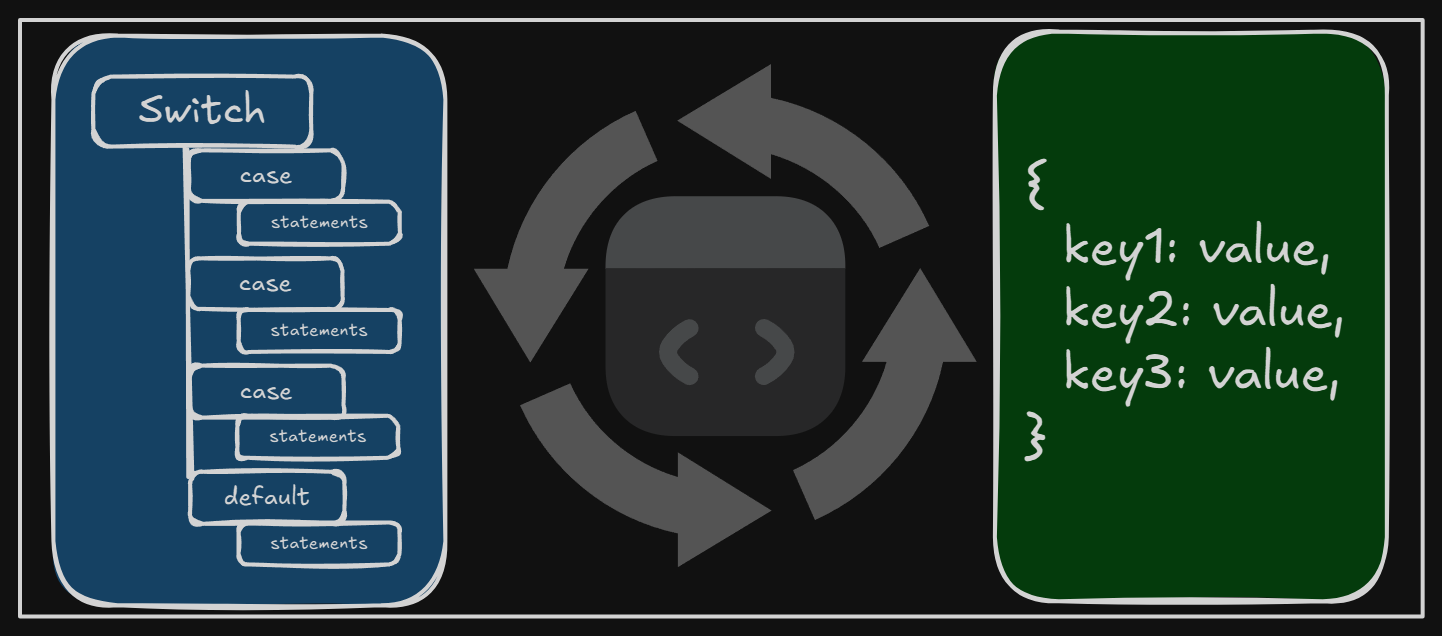Changing a switch statement to an object-like structure
A few days ago, I saw a post on LinkedIn showcasing a cool JavaScript refactor to convert a switch statement into an object-like structure. This approach reduces the number of lines of code and makes it more readable. I decided to apply it to my GitHub project, Gif Tower Defense, and refactored some of its switch statements.

Before performing a refactor, I like to have a set of tests covering the code to ensure that I don’t break anything after the changes.
Here’s an example of the code before the refactor:
switch direction {
case 1:
return 'ConstDirection.RIGHT'
break
case 2:
return 'ConstDirection.LEFT'
break
case 3:
return 'ConstDirection.DOWN'
break
case 4:
return 'ConstDirection.UP'
break
default:
return 'ConstDirection.LEFT'
break
}
And this is the code after the refactor:
return
directionMap as Record ||
'ConstDirection.LEFT'
I also learned that you can use brackets in object keys to create expressions that evaluate to the returned values. For example:
Here’s the code before refactoring:
switch towerId {
case TowerGreen.ID:
canBuy = this.money >= TowerGreen.COST_UPGRADE
break
case TowerRed.ID:
canBuy = this.money >= TowerRed.COST_UPGRADE
break
case TowerYellow.ID:
canBuy = this.money >= TowerYellow.COST_UPGRADE
break
default:
break
}
return canBuy
And here’s the equivalent code after the refactor (here you can view the brackets in object keys):
if cost === undefined
return this.money >= cost
In this commit, you can see other changes I made related to this refactor, including the examples mentioned in this post.